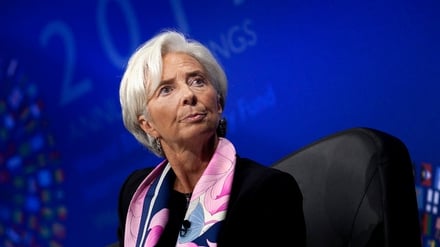German lawmakers approved the latest bailout for Greece today by a large majority despite growing unease about the cost to taxpayers less than a year before federal elections.
The outcome of the vote in the lower house was never in doubt but it was a test of Angela Merkel's authority over her centre-right coalition.
She did not manage to draw an absolute majority from her own ranks after 23 of her lawmakers rebelled.
But with the main opposition Social Democrats (SPD) and Greens voting in favour with most of Ms Merkel's bloc, the revolt had only symbolic value.
Of 584 deputies present in the chamber, 473 voted for the bailout and 100 voted against.
The package, which aims to cut the Greek debt load to 124% of national output by 2020, coincides with increased speculation among German lawmakers and media that eurozone governments will eventually have to write off much of the Greek debt they hold.
Finance Minister Wolfgang Schaeuble said in the Bundestag debate that such speculation could undermine the Greek government's reform drive.
"If we say the debts will be written off [Greece's] willingness to make savings is correspondingly weakened. Such false speculation does not solve the problems," he said.
"A Greek bankruptcy could lead to the break-up of the eurozone."
The government acknowledged for the first time this week that the bailout will mean lost federal revenues.
All week, German newspapers have reverberated with predictions, including from some coalition lawmakers, that Germany and other eurozone countries will eventually have to write off some of their Greek debt holdings.
Mr Schaeuble said Germany was insisting on strict monitoring of Greece's reforms to ensure it met its fiscal targets, adding that the country's competitiveness was finally improving as a result of the austerity programme.
Criticism of the Greek bailouts within Ms Merkel's coalition has softened in recent months after she decided the cost of expelling Greece from the eurozone would be far greater.
The SPD has accused the government of deceiving German voters by insisting that no further writedowns of Greek debt will be necessary, but it is difficult for the strongly pro-euro centre-left party to make political capital out of this issue.
Ms Merkel's policy of talking tough on austerity in Greece and other heavily indebted eurozone countries while making the necessary concessions to avert a messy default commands broad support in Germany, where the chancellor is as popular as ever.
"We will vote for it because we don't want our reliability as European partners left in any doubt. It has nothing to do with the government," Peer Steinbrueck, the SPD's candidate for chancellor in next year's election, said during this morning's debate.
SPD parliamentary leader Frank-Walter Steinmeier accused the government of putting off the "economically unavoidable" debt haircut for Greece for its own political reasons.
"You can postpone it until after Christmas, until after the Lower Saxony election, the Bavarian election or the federal elections, but it will come."
